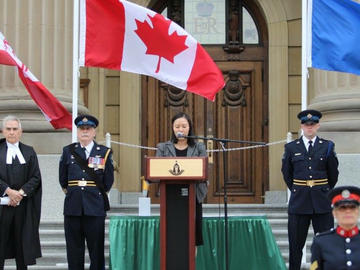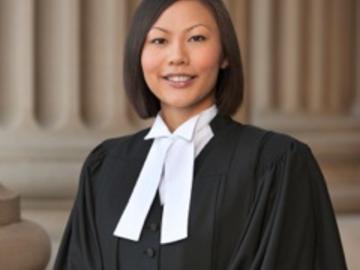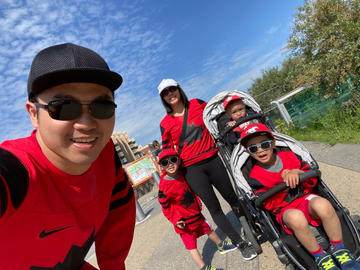Sept. 21, 2022
How human rights issues affect the sports we love

Society upholds elite athletes for their grit, discipline and skill. We mere mortals marvel at their speed, endurance and sustained success and may wonder if they are wired in a special way to get to the top of their game.
Simply put, some athletes have unique biological traits. Olympic swimmer Michael Phelps is famed for his “massive wingspan,” and basketball player LeBron James for his 6’9” stature.
But what about two-time gold medal-winning South African runner Caster Semenya? Although she identifies as a woman and not as transgender, she has higher than normal testosterone due to a biological intersex condition called 46XY differences. These types of biological advantages, coupled with the increasing prominence of transgender athletes, have become a flashpoint of debate among sports’ governing bodies. What, if any, rules should be implemented to keep the playing field even?
Such decisions and related human rights issues and their impact on the sports world will be the topic of a timely Alumni All-Access talk and Q-and-A session, led by alumna Wilma Shim on Oct. 1.
“Human rights are being impacted, and I want people to absorb these issues and decide what is fair,” says Shim, BSc’07 (Kinesiology), JD’10, a lawyer, Master of Laws candidate and a former champion powerlifter. She is an instructor for the faculties of Law and Kinesiology in the area of sports law, and is a member of the Alberta Human Rights Commission.
The topic of “biological advantages” is a thorny one because these traits are beyond an athlete’s control. In Semenya’s case, she was ordered by World Athletics, an international sport-governing body, to take testosterone-reducing drugs to be eligible to compete in her strongest event, the 800-metre. New rules in track ban women with this condition for races between 400 metres and a mile. World Athletics contends the rules are meant to level the playing field for women athletes.
In the resulting legal challenge, Semenya posed the question: Would those regulatory bodies ask Phelps to shorten his arms? Despite these arguments, she has so far had two rulings against her.
“Every athlete has a ‘unique something’ . . . in essence, this additional biological trait has been viewed as a negative by the sport governing body,” says Shim.
Shim will focus on Semenya and the case of now-retired Canadian Olympic boxer Mandy Bujold. Bujold won a landmark case in the Court of Arbitration for Sport (CAS), the highest international court in sports, to compete in the 2021 Tokyo Summer Olympics. As a result of the pandemic, the IOC's boxing task force changed the Olympic qualifying criteria to include a period when Bujold was pregnant or post-partum and not competing. Based on this change, Bujold did not qualify for the Olympic Games.
She challenged the updated rules on the basis they discriminated against women who could not compete during a new timeframe because they were pregnant or post-partum. The CAS ruled that pregnant or post-partum women must be accommodated for the qualification period.
As the topic of fairness versus inclusion rages, Shim wants people to gain a greater knowledge of the issues and find insights into how sports’ governing bodies can impose these types of policies, what can an athlete do, and how the law comes into play on the issue of transgender athletes.
Shim says the International Olympic Committee has released a Framework on Fairness, Inclusion and Non-Discrimination on the Basis of Gender Identity and Sex Variations, which leaves it to international sport federations to define how they want to prepare their policies related to transgender athletes.
“It’s a very live topic — one which will affect a lot of other (competitions), as well,” says Shim.
“My hope is that the audience will come away having learned something they didn’t know before as it pertains to human rights legislation and how human rights generally can impact sports. Knowledge is powerful, and [I hope] they take away something they didn’t know before.”
Shim’s presentation, part of UCalgary’s Alumni All-Access event, takes place from 10 a.m. to 12 p.m. on Oct. 1 and includes a Q-and-A session as well as coffee and a reception. Everyone is welcome; go here to register.









